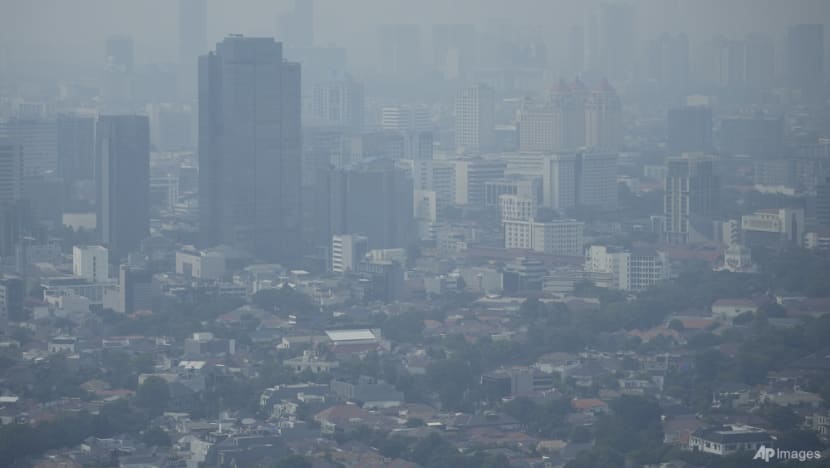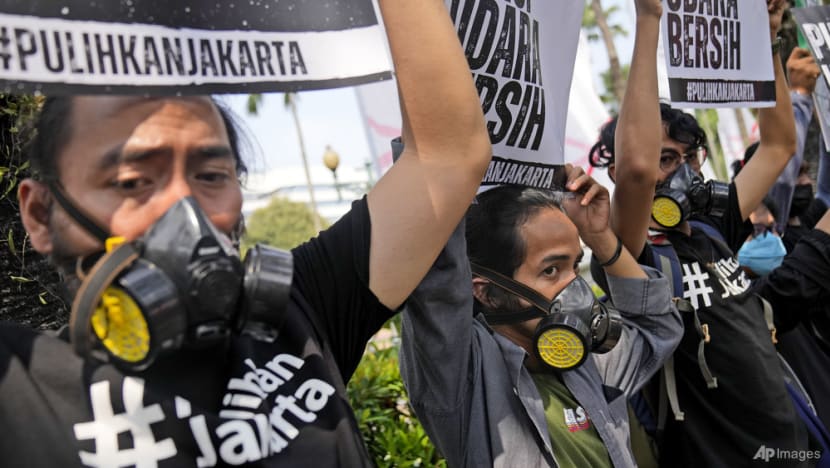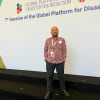Commentary: Living dangerously in Jakarta all over again, amid crippling air pollution
Air pollution is crippling Indonesia’s capital just as the country prepares to host regional leaders, says this Jakarta-based writer.

File photo. Haze blankets the main business district in Jakarta, Indonesia, on Aug 11, 2023. (Photo: AP Photo/Dita Alangkara)
JAKARTA: The 1978 novel by Australian author Christopher Koch, titled The Year Of Living Dangerously, set primarily in the Indonesian capital Jakarta, describes events leading up to the coup attempt by the now-defunct Communist Party of Indonesia on Sep 30, 1965 and the hazards in the city in those days given the socio-political conditions.
Today, Jakarta’s residents are once again enduring weeks of living dangerously, only this time it’s not because of a coup attempt or an insurgency but a more insidious cause - deadly air pollution.
This is not the first time the sprawling metropolis has been blanketed by choking grime. An article in The Interpreter four years ago reported exactly the same situation, and the city has once again been declared to have some of the worst air pollution in the world.
The smog has made both national and global headlines. Indonesian President Joko Widodo is reported to have been battling a cough for weeks, suspected to be related to the air quality in the city, estimated to be home to close to 11 million people.

WHAT'S BEING DONE TO CURB JAKARTA'S AIR POLLUTION?
Widodo has called for measures to tackle the pollution, including urging workers to work in a hybrid manner (both online and offline), limiting emissions and urging residents to use mass transport. Longer-term measures include supervising coal-fired power plants, shifting to electric vehicles and providing more open green space.
Officials and politicians seem to have become air pollution experts overnight and scrambled to tackle the chronic pollution by issuing policies and recommendations.
The Indonesian Ministry of Environment and Forestry has formed a task force to tackle the problem, while the government has again recommended people wear a mask for the first time since lifting Covid-19 mandates a year ago. Last week, half of the city’s civil servants were asked to work from home for the next two months, although media associations cast doubt on the move, saying improving public transport is more important.
There was also a bizarre move taken by the Jakarta police and fire department last week that involved spraying water cannons across Jakarta’s thoroughfares, which was claimed to be an effort to reduce air pollution.
How dangerous exactly is the city’s air pollution?
Head of the Indonesian Lung Doctors Association Agus Dwi Susanto has previously said Jakarta’s air pollution emitted from motorised vehicles was as dangerous as cigarette smoke. “Eighty-six per cent of lung cancer is linked to cigarettes and 4 per cent to air pollution,” Agus told local media in 2019.
Last week, Indonesia’s Health Minister Budi Gunadi Sadikin said the number of acute respiratory infection cases had risen in Jakarta. “We’ve seen (that) before the COVID-19 pandemic, there were about 50,000, now it’s risen up to 200,000 cases,” he said, blaming air pollution.
CLEARING THE AIR BEFORE LEADERS ARRIVE
The thick blanket of smog comes at an unfortunate time as the city gears up to host the summit for the Association of Southeast Asian Nations (ASEAN) from Sep 2 to Sep 7, to be attended by 27 world leaders as well as representatives of international organisations.
The city’s chronic pollution problem appears a perennial one. Instead of addressing the root cause, only short-term fixes are presented. Generating artificial rain by spraying mist from the top of buildings has been proposed along with work-from-home schemes.
But long-term solutions must be considered, rather than reactive directives from the president or the governor. Plans to shift the national capital are still years away, and regardless, analysts doubt that the move will solve Jakarta’s pollution issues.
For Jakarta’s residents, it seems, the years of living dangerously will endure.
Muhammad Ersan Pamungkas is a Jakarta-based writer. This commentary first appeared on Lowy Institute's blog The Interpreter.


















